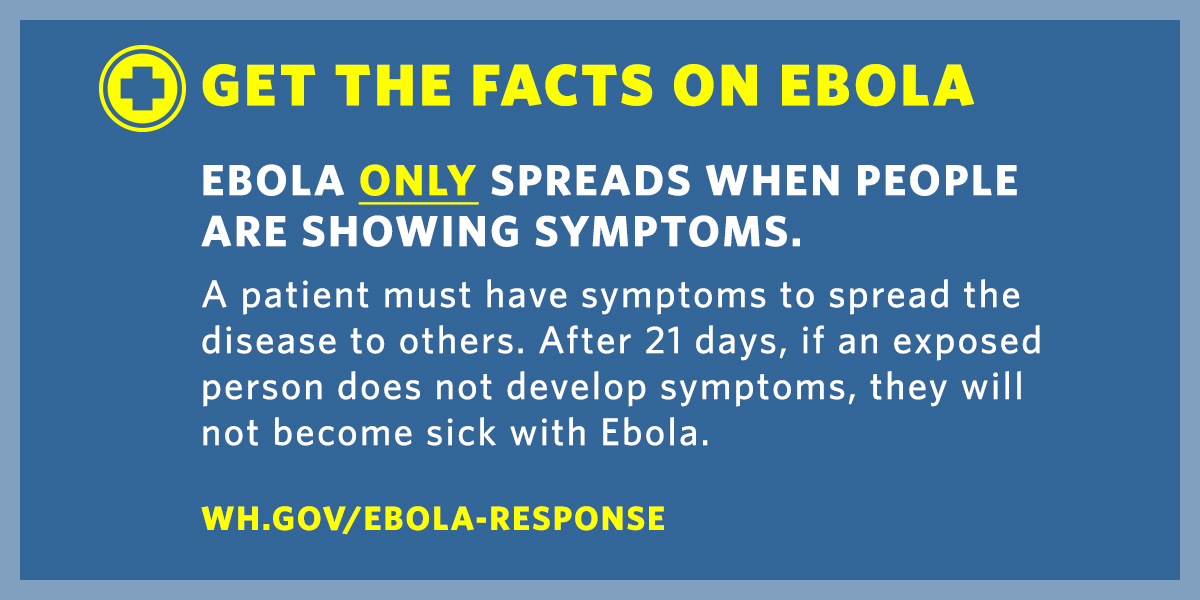With the latest developments of the Ebola crisis in the U.S., there has been widespread panic leaving many frightful (and paranoid) about more people contracting the disease. Personally, I’ve been keeping myself updated on the latest developments. I’m also trying to remain optimistic that the people infected with the virus will get the help they need.
I am a very intuitive person. I believe that thoughts develop into emotions and emotions eventually manifest into reality. The more you worry, the more you empower the things you fear. So, while I do NOT believe we should ignore the Ebola crisis, I DO believe we should remain hopeful that conditions will improve.
With a disease as deadly as Ebola, it is natural for people in the U.S. to become fearful, if you fall in that category, here are some things you should know.
1) People being treated for Ebola in the U.S. ARE improving:
There has been much emphasis placed on Ebola patient, Thomas Eric Duncan who died from the disease BUT every other patient (in the U.S.) being treated (and previously treated) with Ebola have seen improvements in their health. Some health experts have also commented that Thomas Eric Duncan’s delay in care may have played a critical role in his death.
Unlike Ebola stricken countries in West Africa, the U.S. is more equipped to treat people with Ebola, especially if treatment is sought as soon as symptoms appear. Those symptoms include sudden fever, fatigue, muscle aches, headache, and sore throat. More severe symptoms include vomiting, diarrhea, stomach pain, and rash, internal and external bleeding—happen in some cases. People can spread Ebola when they have symptoms which can appear anywhere from 2 to 21 days after being infected with the virus.
2) Ebola is not always fatal
According to Healthgrades, Ebola is NOT an automatic death sentence. In fact, a person’s recovery depends on the strength of their immune system and the supportive care they receive. “Early diagnosis is crucial. Once people recover from Ebola, they have antibodies to the disease which protects them for at least 10 years.” (I don’t know about you, but I’m stocking up on some Vitamin C!)
3) Catching Ebola requires “direct contact,” but there are ways to protect yourself
Knowledge is power and one of the best ways to fight Ebola is having an understanding of how the virus is spread. The most important thing is to avoid direct contact with an infected person. Remember, Ebola is transmitted through bodily fluids. However, it can also live on surfaces. Be sure to have good hygiene practices while in public places; also avoid making any contact with a person who is infected or may have been exposed to someone who is infected. HeathGrades advises: “Avoiding contact with blood, bodily fluids, and contaminated objects is the main way to prevent Ebola. Careful hygiene is the best way to avoid any infectious health risk. Also, alcohol- and bleach-based disinfectants quickly kill the Ebola virus.”
Here’s something else I personally think you should consider:
Prayer Changes Things
I acknowledge that not everyone is “spiritual” but if you do believe in a higher being, I encourage you to act on your faith. Have confidence that you are loved, adored, empowered and protected by your creator. Remember, energy flows where attention goes. Do your best to focus on the positive things happening in your life and trust that God will work out the rest…


















